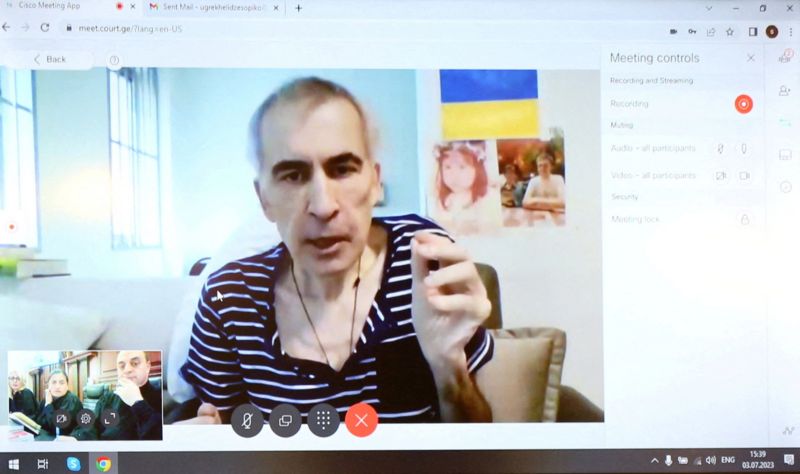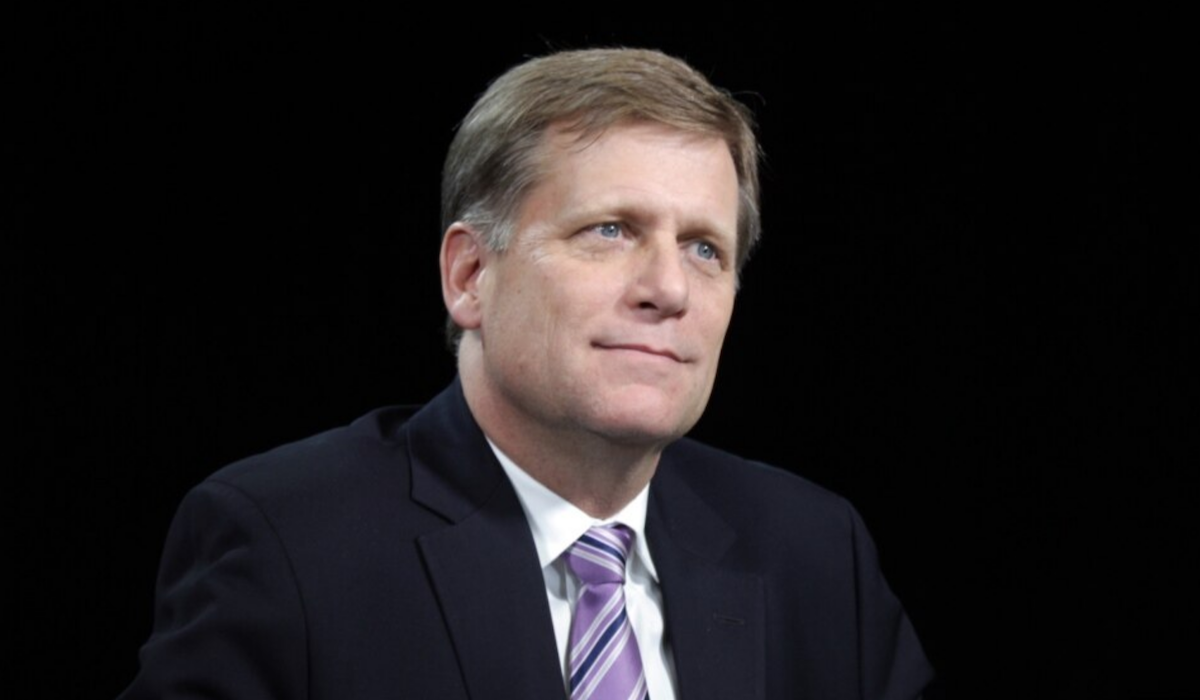Georgian experts on the expulsion of Georgian ambassador from Ukraine
Expulsion of Georgian ambassador
On July 4th, official Kyiv gave the Georgian ambassador in Ukraine 48 hours to leave the country. The ambassador is required to return to Tbilisi and consult with the Georgian government regarding the transfer of Mikhail Saakashvili to Ukraine for medical treatment. This decision was personally made by the President of Ukraine, Volodymyr Zelensky, after footage from the court hearing of Saakashvili on July 3rd was published. Saakashvili participated in the hearing remotely and appeared visibly emaciated and unwell.

In a statement Vladimir Zelensky said, ‘Russia, with the help of Georgian authorities, is now killing Ukrainian citizen Mikhail Saakashvili.’
The Ministry of Foreign Affairs of Georgia has referred to the decision to expel the ambassador as interference in the country’s internal affairs.
“The decision of the Ukrainian authorities inflicts significant damage to the strategic relationship between the two countries and constitutes a direct interference in the internal affairs of a sovereign state. We hope that official Kyiv will reconsider its decision and make efforts towards further developing the historically friendly relations between the two nations,” stated the Ministry of Foreign Affairs of Georgia.
Georgian authorities categorically deny any violation of Mikhail Saakashvili’s rights and assert that he is receiving necessary treatment and care. Saakashvili’s relatives and lawyers have long described his condition as extremely serious and are demanding that he be taken abroad for medical treatment.
- “Do you really want to be vassals of Putin?” – Reviews of the trial of Saakashvili
- What is Georgia’s ex-president tried for?
- Head of Ukraine’s Ministry of Foreign Affairs on the situation with Saakashvili
This is not the first instance of strained relations between Georgia and Ukraine in the past year and a half.
Since the beginning of Russia’s full-scale invasion of Ukraine, the Georgian government has adopted an ambiguous position, refraining from making strong statements against Russia and not imposing anti-Russian sanctions. In May 2023, Tbilisi positively welcomed Vladimir Putin’s decision to restore direct air communication between Georgia and Russia. Since May, in addition to the Russian airline “Azimuth,” Georgian Airways, the main national carrier of Georgia, has been operating flights between Tbilisi and Moscow, as well as transit flights for Russian citizens (which led to it being included in Ukraine’s sanctions list for 10 years).
Meanwhile, Georgian society has shown clear support for Ukraine – the streets of Tbilisi are adorned with Ukrainian flags, and nearly a thousand Georgian fighters have volunteered to fight on the side of Ukraine.
Some Georgian experts consider President Zelensky’s current decision to be unduly harsh.
International relations specialist and former Ambassador of Georgia to Denmark and Iceland, Gigi Gigadze, says he cannot recall such a decision in global practice, where a diplomat is not declared persona non grata but simply urged to leave the country within 48 hours and consult with their government.
“In a way, they are leaving a last chance, not taking the extreme step. However, the fact itself is very saddening.”
However, according to Gigadze, Ukraine will not sever diplomatic relations with Georgia.
“I don’t think the Ukrainian side will go that far because, despite the statements we have heard, it is clear that, in addition to the government, the Georgian people, the overwhelming majority of the population, stand in solidarity with the Ukrainian people.”
▇ Gigadze believes that the decline in Georgia-Ukraine relations is detrimental to Georgia from a European perspective.
“Now is the time when Georgia should be considered on the Western stage alongside Ukraine because we know that by the end of the year, Ukraine is likely to set a record in fulfilling EU recommendations and will be moving forward together with Moldova. The deterioration of relations between Ukraine and Georgia does not bode well for our country’s prospects of attaining candidate status.”
Gigadze states that Kyiv’s decision was not made spontaneously but is a “logical continuation and culmination of what we have been witnessing for the past year and a half.”
“The statements made by the Georgian government, the ruling party ‘Georgian Dream,’ and the position they have maintained from the very beginning have always caused dissatisfaction among Ukrainians. In early March 2023, Ukraine recalled its ambassador from Georgia. And now, here we are.”
Doctor of International Relations, Tornike Sharashenidze, is convinced that Zelensky’s decision amounts to the expulsion of the ambassador:
“In my view, this is the wrong decision… Telling the ambassador of another country to leave for negotiations is effectively an expulsion. We would have expelled their ambassador as well, but he is no longer here, so the conditions are unequal.”
According to Sharashenidze, Zelensky has thus expressed his position towards the Georgian government:
“The ambassador will come, they will talk, Saakashvili will not be released, and it will all be over. I believe Zelensky also understands that Saakashvili will not be released. With this statement, he simply expressed his position towards the Georgian government, nothing more. Well, the ambassador will come here, and who will that scare?”
According to Sharashenidze, the entire history involving Saakashvili, starting from his departure to Ukraine many years ago, is the true reason for Tbilisi’s dissatisfaction with Kyiv. On the other hand, the expert acknowledges that the rhetoric of the Georgian government has not been friendly since the beginning of the war.
Giya Nodia, a Doctor of Political Science, believes that while the Saakashvili factor is indeed an objective irritant in the relationship between the two countries, “the main factor is the position of the Georgian government regarding the war.”
“It seems that the Saakashvili factor became a catalyst to some extent, but this factor has existed for a long time, and Ukraine has long expressed its desire for his extradition,” says Nodia.
He does not expect Georgia to make concessions.
“To be honest, I don’t know why Zelensky made this decision. It’s clear that the relations between the Georgian and Ukrainian authorities have been poor for a long time, but this will only worsen it further.”
The political analyst does not anticipate any normalization of relations between the two countries in the near future, nor does he expect a more dramatic turn of events.
“If the Georgian government does not fundamentally change the direction of its overall policy, which is not expected in itself, then improvements in the relationship are unlikely. However, this does not imply any dramatic development of events. It simply means that the already bad situation will become even worse.”




















